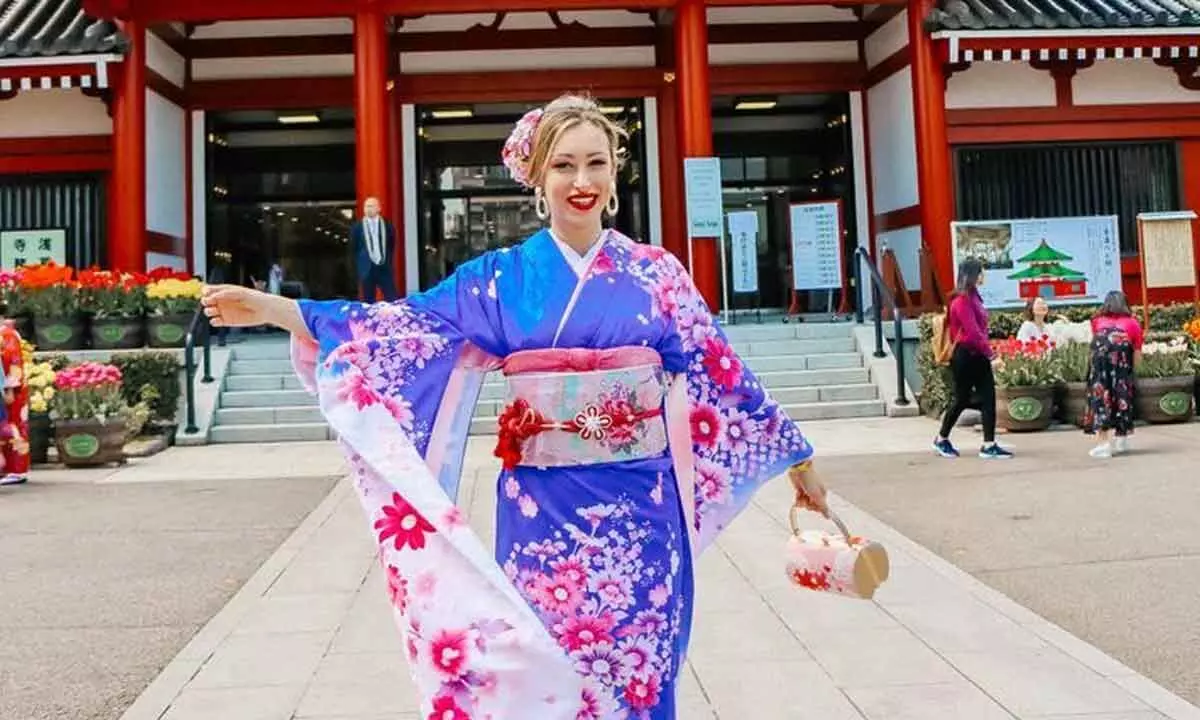Japan Favorite tourist destination Know its unique culture and tradition

JAPAN is known for its unique culture.
- Japan has become Favorite tourists’ destination because it has got a blend of both old tradition as well as new technology.
- Here, you can discover gorgeous natural landscapes just a short train ride from the sparkling, sprawling cities and loud, jarring outlets.
- Japan shore excursion and tour to Japan is fun and only full of good surprises, especially it would help save money along the way too.
Below you can find some of the unique culture and tradition
1. Bowing Etiquette
Bowing is nothing less than an art form in Japan, which is pounded into children head, the moment they enter the school. Bowing is also one of the Japanese business etiquettes which you can see in any office here. Both, the duration and the inclination of the bow are proportionate to the elevation of the person you are addressing. For example, a friend might get a lightning fast 30 degrees bow and an office superior might get a slow, extended 70-degree bow. It is all about position and circumstances.
2. Table Manners : Traditional way of dining
You would receive a small wet cloth at most Japanese restaurants. Use this to wash your hands before eating, then carefully fold it and set aside on the table. Do not use as a naptin or to touch any part of your face.
3. No tipping in Japan
in Japan, there no tipping practice, be it cabs, restaurants, personal care. To tip someone is actually a little insulting, the services you have asked for are covered by the price given, hence pay more?
If you are in large area such as Tokyo and cannot speak Japanese, a waiter or waitress might take the extra money you happen to leave rather than force themselves to deal with the awkward situation of explaining the concept of no tipping in broken English.
4. Chopstick
You might be required to use chopsticks, If for some reason you are not too adept with chopsticks, you better learn this skill, it is not hard.
5. Thresholds
You must take off your shoes at the entrance to all homes and most businesses and hotels. Usually, a rack will be provided to store your shoes and the pair of guest slippers will be sitting nearby, many Japanese bring a pair of indoor slippers just in case though.
You must be careful to remove the toilet slippers waiting for you in the bathroom. You must re-enter the main room of the house wearing the slippers, which have been running across the dirty linoleum.
6. Masks
Sterlized masks, like the ones you would see in the emergency room are commonly used by the salarymen, office ladies and municipal workers to protect other people from their germs. The reason could be anything from a slight cold to simply being about exposing other people, do not let it concern you on your Japan shore excursions.
7. Bathing in Japan
Public bathhouses are alive and well in Japan, sento or neighborhood bathhouses can be found from largest area in Shinjuku to a small town on the island of Shikoku. Onsen or hot springs are very popular as weekend excursion resorts. Unlike in western cultures, the Japanese bath is sued after you have washed and rinsed and feel like soaking in extra hot water for 10.,20, 30 , minutes. It an acquired taste to be sure, but can be very relaxing.
If you happen to be invited into a Japanese household, you would given the honor of using the bath first, usually before dinner. Be extra careful as to not to dirty the water in any way. Take time to visit Sento, if you have the opportunity. These are places without bariers, without regard to skin colour, age or language, they are separated by gender with the exception of some mixed bathing areas. Lying in the hot water and slowly listening to the heart beat slow down is a time when you would attuned to Japanese culture.
8. Safety in Japan
Almost all Japanese individuals whom you are close would be warning to be safe while travelling, to take care of your belonging. Similarly, nothing can go wrong, in Japan, this is what foreigners tend to say. This may be based on individual experience, there are other issues. The fear of crime in Japan is high, especially among Japanese citizens. Murders tend to happens, yes, murders tend to happen. People are attacked, robbed, assaulted, raped, beaten and swindled.
Japan’s low crime rat3e is evident, when you see businessmen who have missed the train sleeping outside on a park bench, or a group of 5-year-old boys walking by themselves for over a kilometer to make the starting bell at the school.

